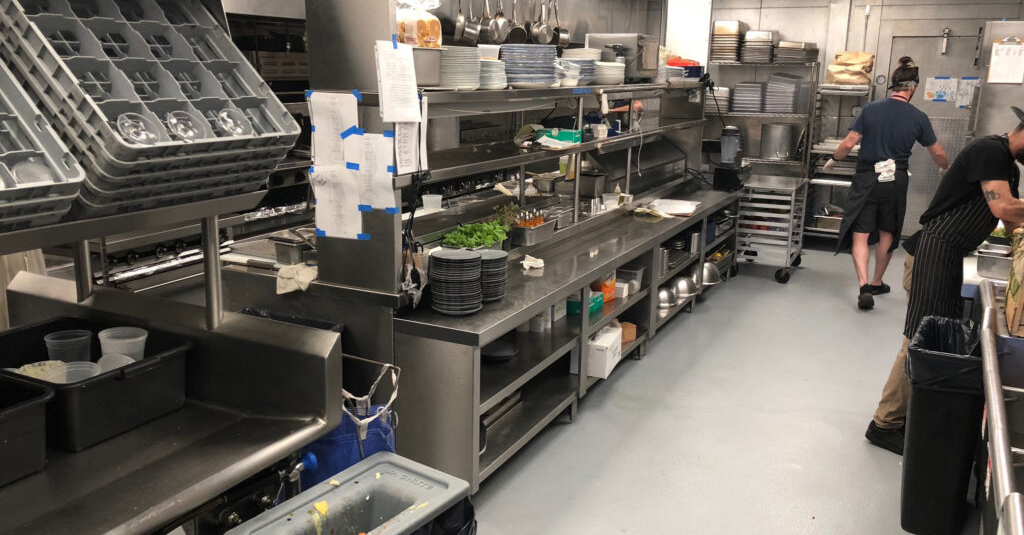
5 Things to Consider Before Choosing Your Commercial Kitchen Flooring
The conditions in commercial kitchens are a far cry from those in your home kitchen. Hot oil splatters, temperature extremes, constant foot traffic, dropped pans and other equipment, and spills and dampness can all take a toll on the flooring. Not only does the floor need to be safe for the employees in the kitchen, but it also needs to be hygienic for consumer safety. Seams, fissures, and cracks all harbor dampness, dust, debris, and microbes, increasing the risk of food-borne illnesses and disease. When it comes to choosing the flooring in your kitchen, you need one that can take abuse without failing or risking your staff or customers. Here is what you need to know.
1. Cleanliness and hygiene
Your top priority will likely be maintaining a kitchen that is clean, safe, and compliant with USDA, state, and local food regulations. Food safety protocol breaches could leave your customers and staff at risk. For this reason, tiles, grout, and seamed surfaces are rarely a top choice for food preparation areas: There are simply too many small areas that can entrap food particles, liquids, and other debris.
Epoxy flooring is seamless and covers from floor to wall. Additional antimicrobial properties can be included in the coating to keep your space cleaner and safer.
2. Maintenance
Seamless epoxy flooring is easy to maintain, eliminating all possible hiding spots for potential pathogens. It does not need a complicated cleaning routine. In most cases, simple brushing and mopping are sufficient, but epoxy also holds up well to steam cleaning, pressure washing, and automatic scrubbing. With the right slope, liquids will not pool or puddle but will be directed towards the floor drain, further reducing microbe growth and slip-and-fall risks.
3. Slip resistance
On the subject of slip-and-falls, a commercial kitchen floor must be safe for its users. Backroom conditions are often such that spills are inevitable, with water, oils, and other fluids making an appearance on the flooring. Slip-resistant mats can reduce the hazards, but moisture tolerant floors are designed to incorporate the skid resistance into the floor itself, maximizing traction while minimizing the risk of injury.
4. Strength and durability
Most commercial kitchens see their fair share of harsh conditions. Extreme temperature changes, abrasive granular ingredients, heavy pots and pans, and degreasers and solvents can all affect the flooring. Conventional flooring systems weaken, crack, peel, blister, and fail, necessitating repair or replacement. The best commercial kitchen flooring systems have a high-performance finish that can stand up to the worst environments.
5. Temperature resistance
Thermal shock occurs when the concrete substrate and coating expands and contracts in response to dramatic temperature changes. Commercial kitchens with their deep fryers, hot ovens, walk-in freezers, and dishwashing stations have dramatic temperature changes throughout the space. The right commercial kitchen flooring system will protect the floor from thermal shock and keep your kitchen intact.
Blackrock Industrial can help you keep your commercial kitchen clean, safe, and easy to maintain with the right flooring system. Call us today for more information about moisture tolerant floors or to schedule a site visit with our installation specialist.


